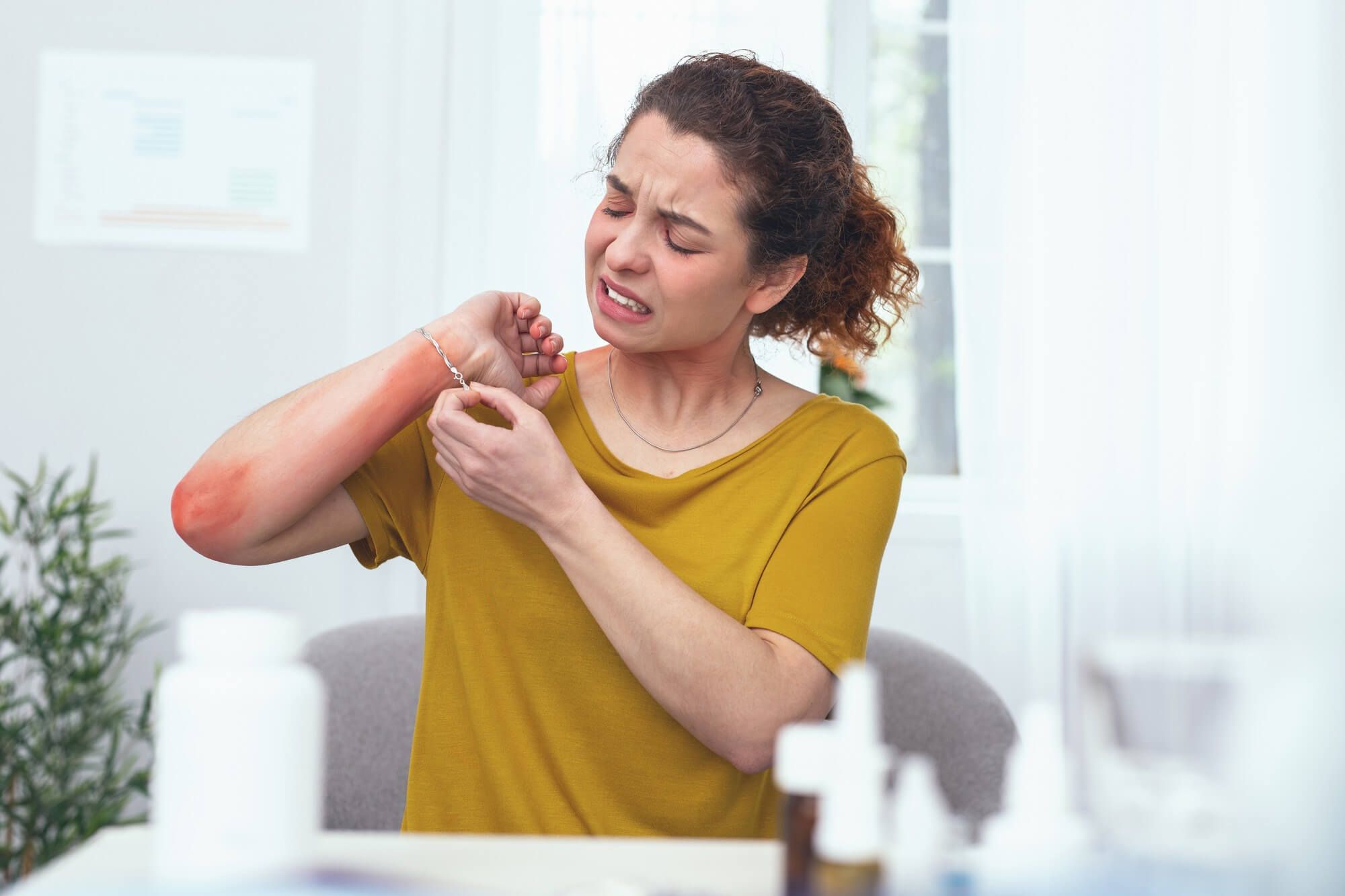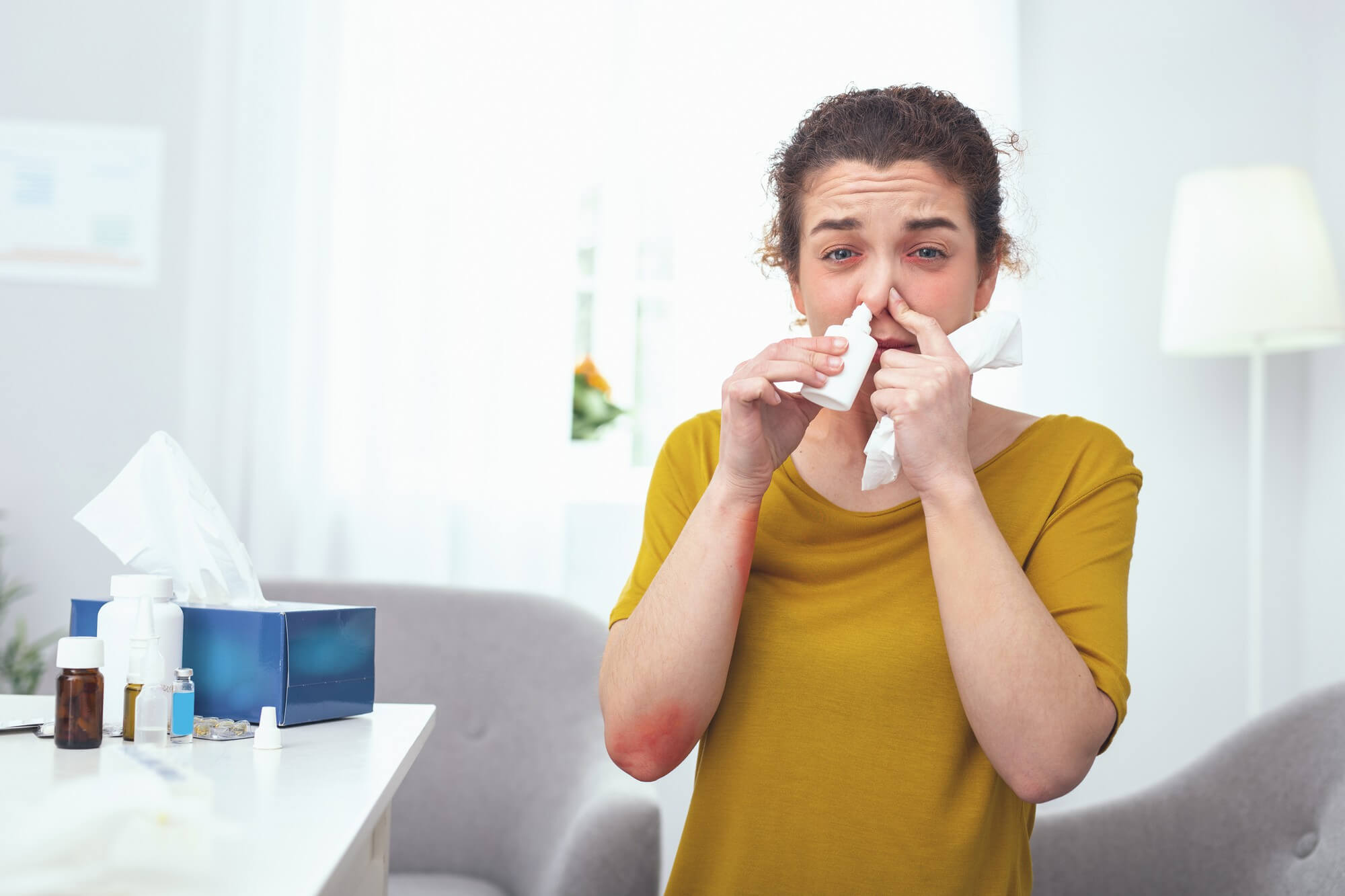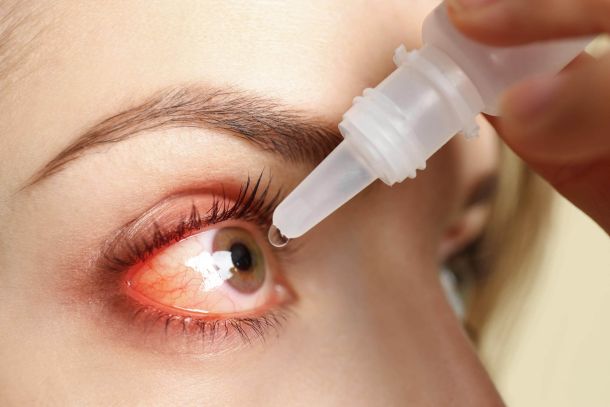Causes and treatment of skin allergies


Irina Makarova
Skin allergies are common among adults and children, causing many unpleasant symptoms such as allergic rashes, itching, redness, and others. In this article, an experienced allergist will discuss the causes, symptoms and treatment of skin allergies.
A skin allergy is the body's immune response to a certain irritant, or allergen, that causes an inflammatory process on the skin. This results in various rashes such as allergic pimples, spots and blisters.
There are many types of skin allergies, including atopic dermatitis, contact dermatitis, urticaria, and other allergic skin conditions.
According to the World Health Organization, about 20% of the world's population suffers from various forms of skin allergies. This makes allergic reactions to the skin one of the most common conditions.
Causes of skin allergies

- Certain foods, such as milk, eggs, nuts, and fish, can cause an allergic skin rash. And the reaction may appear on the body as well as on the forehead, shoulders, thighs, and other parts of the body.
- Contact with certain substances, such as nickel, latex, chemicals in cosmetics and detergents can cause contact dermatitis and allergic pimples on the shoulders, forearms, ankles, and other areas of the skin.
- Plant pollen, mold, pet dander, and pet dander can cause allergic skin rashes in the form of pimples, red dots, and blisters.
- Hereditary predisposition, immune system disorders, the presence of other allergic diseases, and unfavorable environmental conditions can contribute to skin allergies.
Symptoms of skin allergies
How do skin allergies manifest themselves? Symptoms of allergies on the skin include allergy rash in the form of red spots, rashes all over the body, allergic pimples, redness, itching, and inflammation.
Diagnosis of allergic skin reactions
- An allergologist examines the patient's skin, assessing the nature of the rash and its location.
- Special tests, such as skin tests, are performed to determine the allergen causing the reaction.
- Depending on the clinical picture, the doctor may prescribe additional examinations, such as blood tests, biochemical studies and others.
Treatment of skin allergies

Treatment of skin allergies begins with exclusion of contact with the allergen and symptomatic therapy aimed at eliminating rashes, itching and inflammation. In some cases, physiotherapeutic procedures may be prescribed to speed up the healing process.
Medications to treat skin allergies
Antihistamines such as Cetirizine, Loratadine or Erius block the effects of histamine and relieve allergy symptoms such as itching and redness. The best allergy pills can be prescribed by a doctor depending on the individual patient.
In cases of severe allergies with extensive rashes on the body, hormonal ointments such as hydrocortisone or fluorocort may be prescribed. They help reduce inflammation and itching, but must be used strictly as prescribed by a doctor, as they have a number of side effects.
Non-hormonal ointments and creams such as Bepanten or Cincal have soothing, healing and anti-inflammatory properties. They are suitable for the treatment of mild allergies and are suitable for long-term use.
Products based on menthol, calamine or phenistil can be used to relieve itching and skin irritation in allergies.
Physiotherapeutic treatments
Ultraviolet irradiation, magnetic therapy, laser therapy and other physiotherapeutic methods may be prescribed by the doctor to accelerate the skin healing process and improve the overall condition of the patient.
Skin allergy prevention

The main measures to prevent skin allergies are to avoid Avoiding contact with allergens, keeping hygienic skin, and using hypoallergenic cosmetics and detergents. It is also important to support the immune system through a healthy diet, getting enough sleep, moderate physical activity and avoiding stress.
In conclusion, skin allergies are common and can significantly reduce quality of life. However, with timely diagnosis and a comprehensive approach to treatment, you can successfully control symptoms and prevent exacerbations. If you are faced with allergic manifestations on the skin, you should not treat them yourself - contact an experienced allergist, who will help you choose the best therapy and offer advice on preventing possible relapses.
New materials
Popular Articles
We recommend reading
Contact us in the Contact Us section to ask questions, offer ideas, or for more information about our allergy resource.
Our articles are your trusted source of allergy knowledge. Learn how to make life with allergic reactions easier on our specialized portal.
©
Lechenie-Allergii.com. All rights reserved.
© Lechenie-Allergii.com. All rights reserved.
The information on this site is for informational purposes only and is not a substitute for professional medical advice. We recommend consulting with qualified medical professionals for accurate information and advice.
 English
English  Українська
Українська  Русский
Русский 









